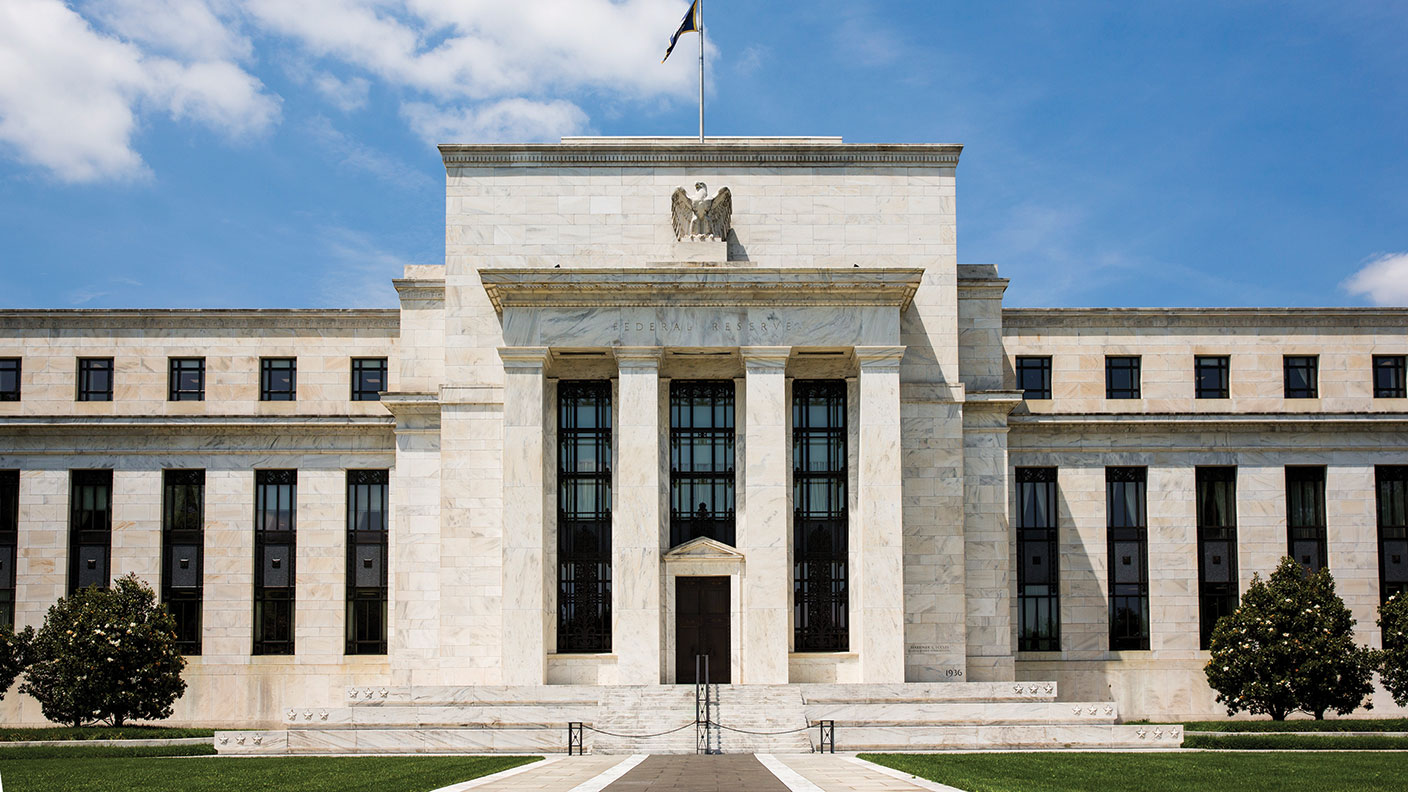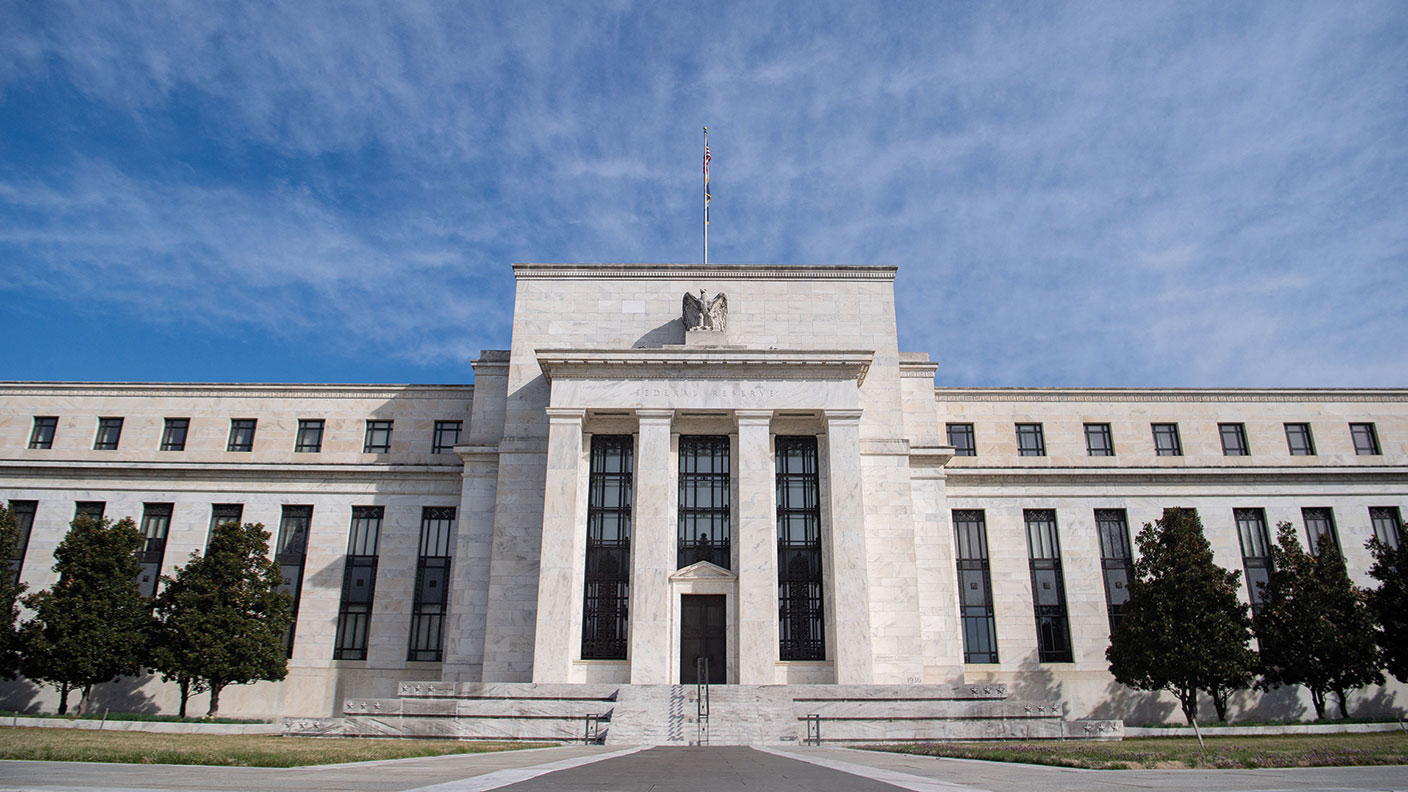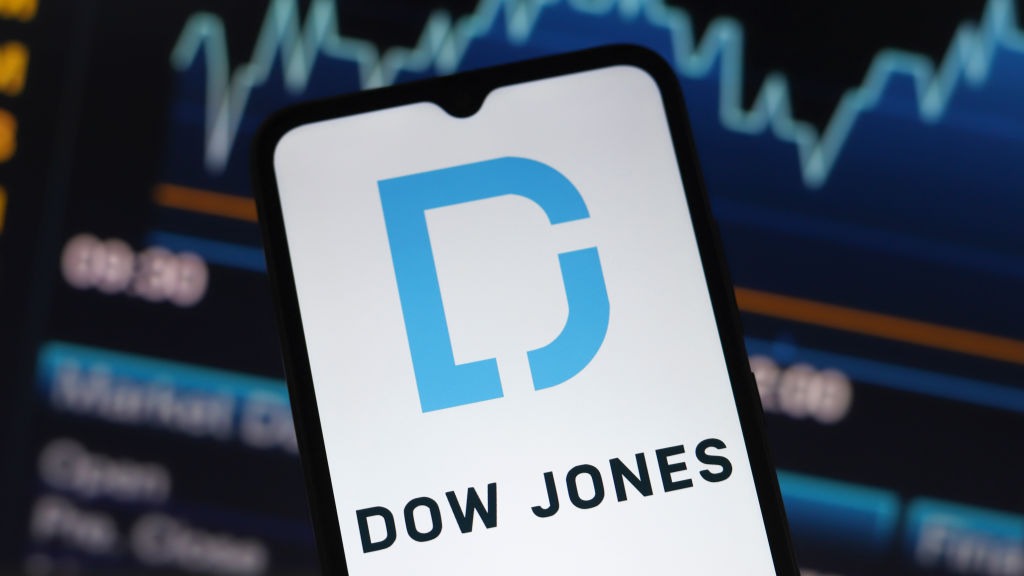Get the latest financial news, insights and expert analysis from our award-winning MoneyWeek team, to help you understand what really matters when it comes to your finances.
You are now subscribed
Your newsletter sign-up was successful
Want to add more newsletters?

Twice daily
MoneyWeek
Get the latest financial news, insights and expert analysis from our award-winning MoneyWeek team, to help you understand what really matters when it comes to your finances.

Four times a week
Look After My Bills
Sign up to our free money-saving newsletter, filled with the latest news and expert advice to help you find the best tips and deals for managing your bills. Start saving today!

"I give a business downturn starting this year a two-thirds probability," writes author and strategist A. Gary Shilling on Bloomberg. Recession warnings are hardly unusual, but it might pay to listen to Shilling: he was among the few investors to correctly predict a lengthy stagnation in the wake of the financial crisis. In his 2010 book, The Age of Deleveraging: Investment Strategies for a Decade of Slow Growth and Deflation, Shilling warned that the US was set for a prolonged period of slow growth, and outlined ways for investors to profit from it.
However, notes Shilling, investors shouldn't lie awake at night fearing a repeat of 2008. Of the 11 recessions the US has seen since World War II (including the 2007-2009 slump), only three have been the result of "major financial or economic excesses". These were the mid-1970s crash (which saw the S&P 500 in the US fall by nearly 50%); the tech bubble and bust (where the tech-heavy Nasdaq index lost nearly 80%); and the subprime crisis, when stocks fell nearly 60%.
The other eight recessions were simply down to "normal late economic cycle business and investors' overconfidence". On average, stockmarket losses amounted to slightly more than 20% in these sorts of recessions, which is the sort of peak-to-trough loss that Shilling now expects. That would take the S&P 500 down to around the 2,300 level. Of course, the Fed might cut rates and deliver a "soft landing", as happened in the mid-1990s. But that would just delay the downturn until 2020, he says. According to Bernice Napach on ThinkAdvisor, Shilling reckons any recession will boost the US dollar, spelling bad news for commodities and emerging markets.
MoneyWeek
Subscribe to MoneyWeek today and get your first six magazine issues absolutely FREE

Sign up to Money Morning
Don't miss the latest investment and personal finances news, market analysis, plus money-saving tips with our free twice-daily newsletter
Don't miss the latest investment and personal finances news, market analysis, plus money-saving tips with our free twice-daily newsletter
Get the latest financial news, insights and expert analysis from our award-winning MoneyWeek team, to help you understand what really matters when it comes to your finances.
MoneyWeek is written by a team of experienced and award-winning journalists, plus expert columnists. As well as daily digital news and features, MoneyWeek also publishes a weekly magazine, covering investing and personal finance. From share tips, pensions, gold to practical investment tips - we provide a round-up to help you make money and keep it.
-
 Should you buy an active ETF?
Should you buy an active ETF?ETFs are often mischaracterised as passive products, but they can be a convenient way to add active management to your portfolio
-
 Power up your pension before 5 April – easy ways to save before the tax year end
Power up your pension before 5 April – easy ways to save before the tax year endWith the end of the tax year looming, pension savers currently have a window to review and maximise what’s going into their retirement funds – we look at how
-
 Canada will be a winner in this new era of deglobalisation and populism
Canada will be a winner in this new era of deglobalisation and populismGreg Eckel, portfolio manager at Canadian General Investments, selects three Canadian stocks
-
 US inflation brings no respite for markets
US inflation brings no respite for marketsNews As US inflation hit a 40-year high, the benchmark S&P 500 stockmarket index slid into a bear market, down more than 20% since its 3 January high.
-
 Central banks change their tune on inflation
Central banks change their tune on inflationNews With prices rising at 7.9% in the US and 6.2% in the UK, and global commodity prices surging, central banks around the world are being forced into inflation-fighting mode.
-
 Interest rates might rise faster than expected – what does that mean for your money?
Interest rates might rise faster than expected – what does that mean for your money?Analysis The idea that the US Federal Reserve could raise interest rates much earlier than anticipated has upset the markets. John Stepek explains why, and what it means for you.
-
 Quiz of the week 21-27 November
Quiz of the week 21-27 NovemberFeatures Test your recollection of the events of the last seven days with MoneyWeek's quiz of the week.
-
 The world’s greatest investors: Bill Nygren
The world’s greatest investors: Bill NygrenFeatures Nygren is a value investor who looks for companies that he thinks are trading below what he considers to be their intrinsic value.
-
 Buffett’s bet: can a tracker trounce the hedgies?
Buffett’s bet: can a tracker trounce the hedgies?Features There’s no sense in handing 1%-2% plus fees to fund managers when a cheap tracker gets results, says Stephen Connolly.
-
 3 July 1884: Dow Jones launches the world’s first stock index
3 July 1884: Dow Jones launches the world’s first stock indexOn 3 July 1884, the world’s first stock index, the Dow Jones Transportation Index, was published by Charles Dow.

